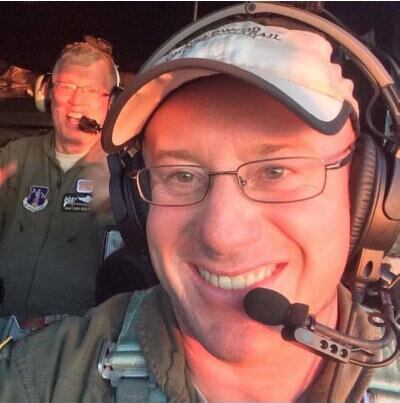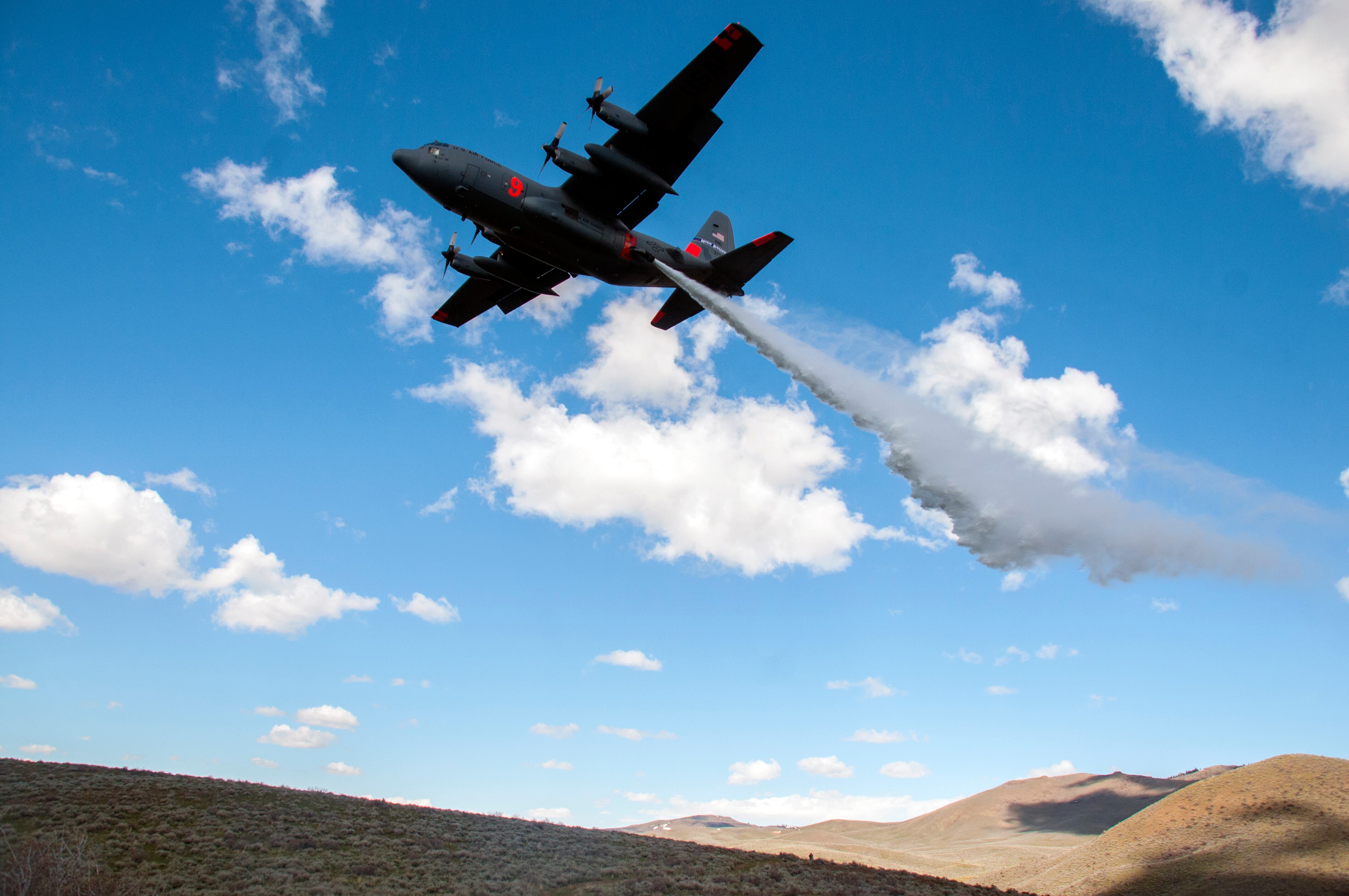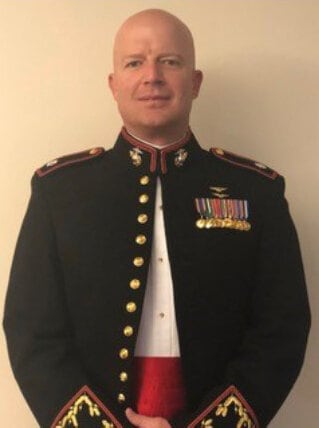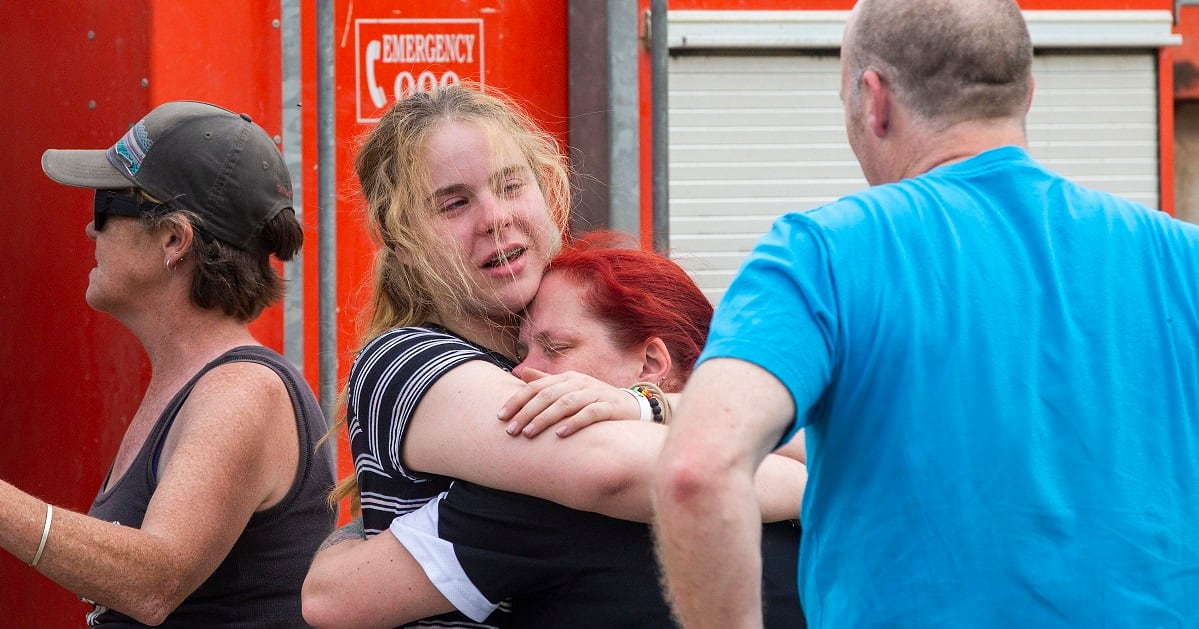A pilot from the Montana Air National Guard was one of three American firefighters killed when a Canadian firefighting company’s C-130 crashed Wednesday while battling the wildfires raging across Australia.
The American branch of Coulson Aviation, which is based in British Columbia, said in a release that Ian McBeth was one of three crew members killed when one of its Lockheed C-130 tankers crashed in the Snowy Monaro Area of New South Wales, Australia. The C-130 had just dropped a load of more than 4,000 gallons of fire retardant on a fire before it went down, investigators said on Friday.
McBeth, 44, of Great Falls, Montana, was the captain of the C-130. The other crew members were First Officer Paul Hudson, 42, of Buckeye, Arizona, and Flight Engineer Rick DeMorgan, 43, of Navarre, Florida.

DeMorgan was also an 18-year veteran of the Air Force, as a flight engineer on C-130s. And Hudson graduated from the Naval Academy in 1999 and served 20 years in the Marine Corps, including time as a C-130 pilot, retiring as a highly-decorated lieutenant colonel.
RELATED

The Montana Air National Guard earlier on Thursday confirmed that McBeth was part of the 120th Airlift Wing in Great Falls. Coulson said McBeth was an experienced pilot who spent his entire career flying C-130s, and was with the Wyoming Air National Guard before flying with the Montana Guard.
He is survived by his wife, Bowdie, and his three children, Abigail, Calvin and Ella, Coulson said, as well as his parents and siblings.
“Ian’s love for his wife and children was evident for anyone who spent time around him,” the Coulson release said. “Ian was a highly qualified and respected C-130 pilot with many years fighting fire, both in the military and with Coulson Aviation.”

DeMorgan had more than 4,000 hours as a flight engineer on the C-130, including 2,000 in a combat environment, Coulson said.
He is survived by his two children, Lucas and Logan, his parents, and his sister.
“Ricks passion was always flying and his children,” Coulson said.
Hudson is survived by his wife, Noreen, the release said.

Coulson pledged to support the fallen aviators’ families.
“At Coulson Aviation, we have the incredible job of fighting fires around the world and we take pride in this responsibility," the company said in the release. "Right now, our hearts are with the crew’s family and friends and our Coulson family suffering in the loss of these three remarkable and well-respected crew-members.”
“The aviation industry and emergency service sector is a small community both in Australia and around the world. This will be deeply felt by all.”
Australia’s Rural Fire Service said Thursday the C-130 had crashed near Cooma, south of the Australian capital Canberra, according to a Washington Post report. All three crew were U.S. residents, fire commissioner Shane Fitzsimmons said.
“We simply lost contact with the machine and the flight tracker we used stopped,” Fitzsimmons said. “There is no indication at this stage what caused the accident.”

Fitzsimmons said there was a “large fireball” at the crash site, the Post reported.
Specialist investigators were sent to the crash site, and a team was working to recover the victims’ bodies, Australian Transport Safety Bureau Chief Commissioner Greg Hood told reporters Friday.
He described a difficult process of securing evidence of the crash and the victims’ remains, since the wildfire is still burning and potential hazards such as aviation fuel are present.
Upward of 500 firefighting aircraft from several countries are fighting Australia’s wildfires, Hood said, adding “So, if there are lessons to be learned from this particular accident, it’s really important that not only Australia learns these, but the world learns them.”
The loss of the three Americans brings the death toll from the blazes in Australia to at least 31 since September. The fires have also destroyed more than 2,600 homes and razed more than 10.4 million hectares, or 25.7 million acres, an area bigger than Indiana.
Coulson grounded other firefighting aircraft as a precaution pending investigation, reducing planes available to firefighters in New South Wales and neighboring Victoria state.
Gladys Berejiklian, premier of New South Wales, said flags would be flown at half-staff in honor of the firefighters.
Stephen Losey is the air warfare reporter for Defense News. He previously covered leadership and personnel issues at Air Force Times, and the Pentagon, special operations and air warfare at Military.com. He has traveled to the Middle East to cover U.S. Air Force operations.




